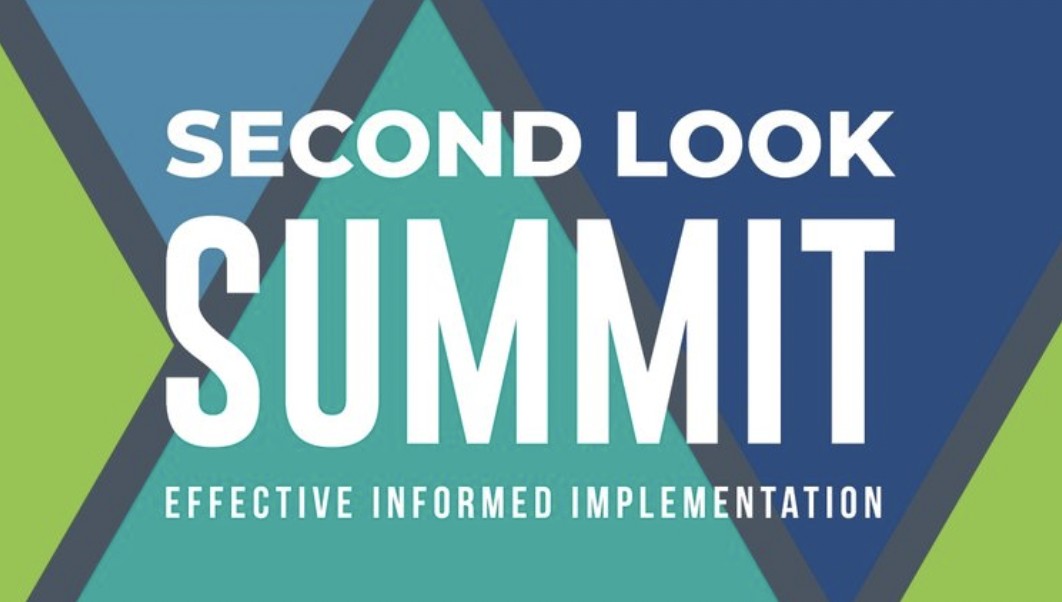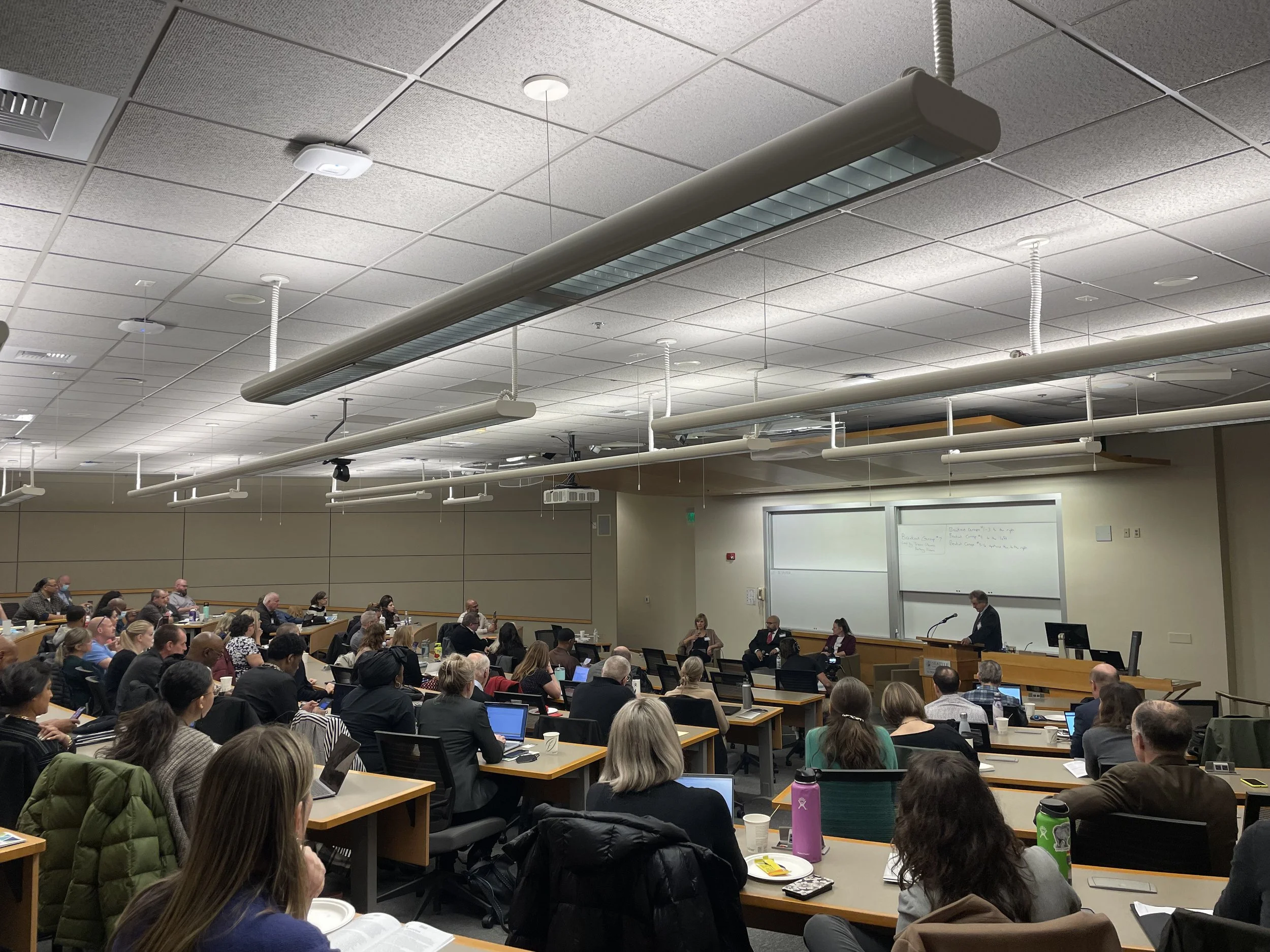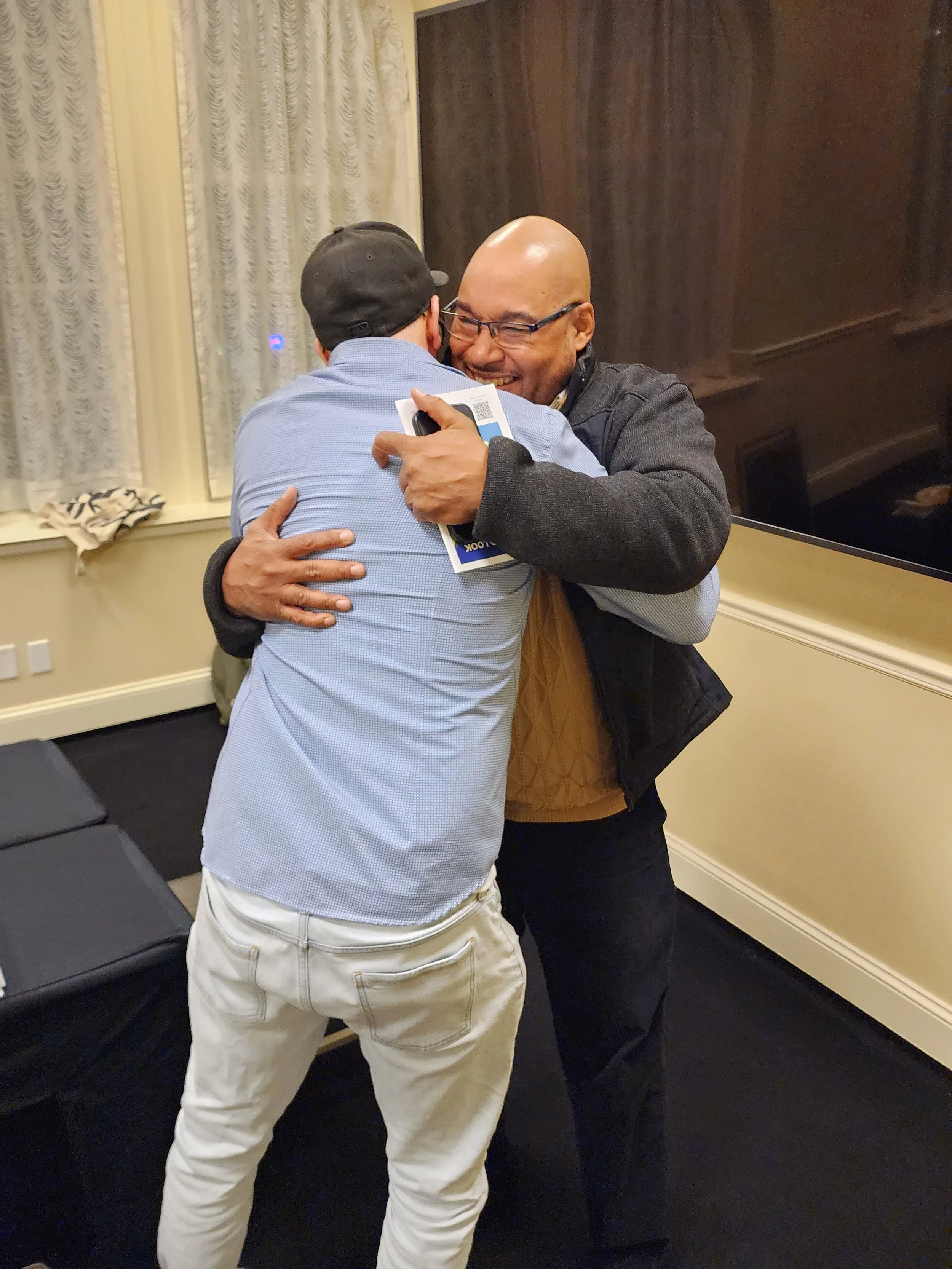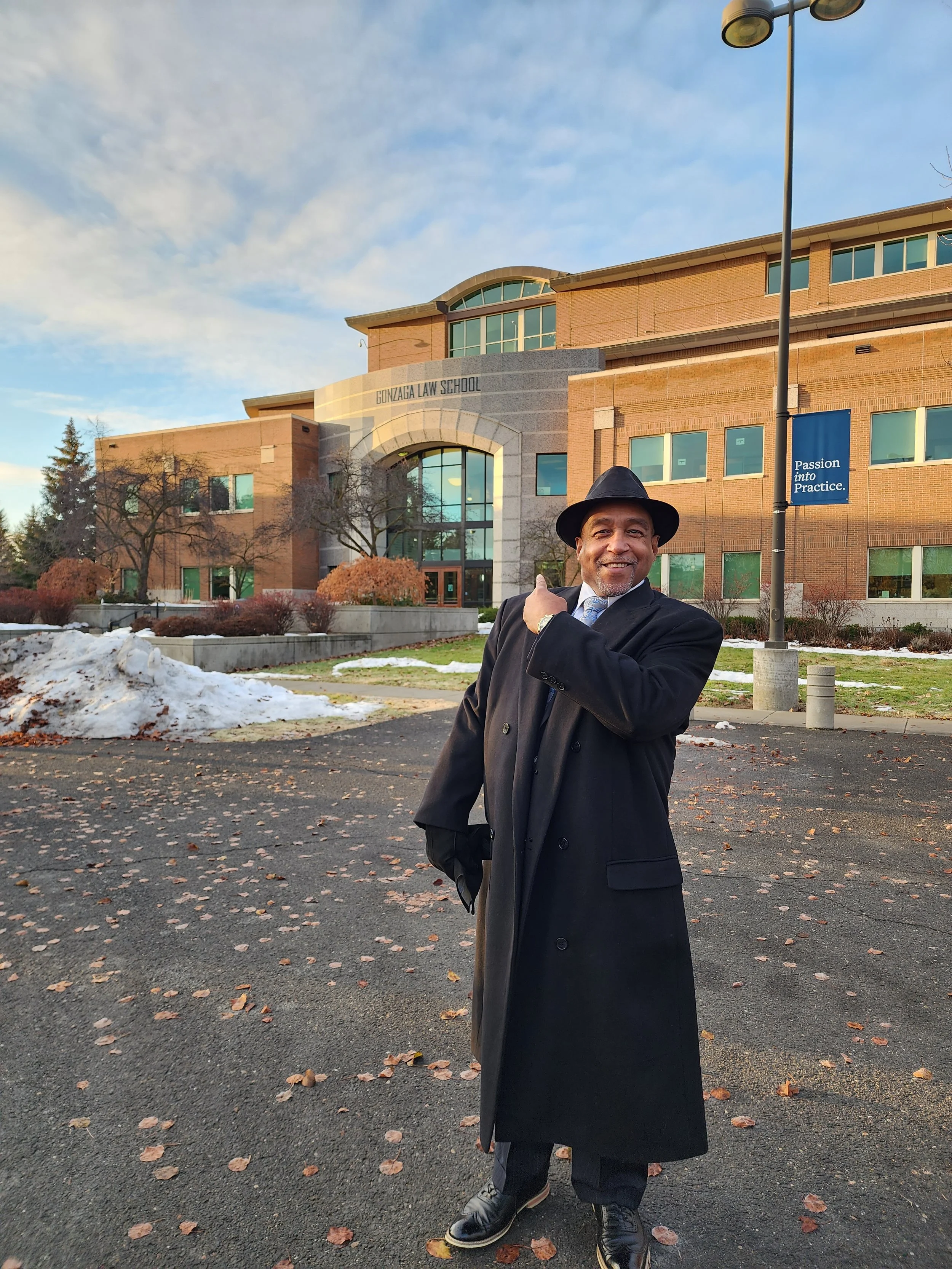Seattle Clemency Project hosts the 2023 Second Look Summit
By Brooke Kaufman | Communications Specialist
On January 6, 2023, the Seattle Clemency Project hosted the Second Look Summit, a collaborative event for Washington State’s trial-level criminal legal system practitioners, community organizers, and supporters of second look casework. The summit invited judges, prosecutors, defenders, and other criminal justice leaders from across the state to convene at Seattle University School of Law and Gonzaga University School of Law for a day of panel conversations and workshops. Discussions centered around the resentencing pathways that have emerged for individuals serving life or long sentences and how best to allocate resources in a time of unprecedented demand.
Attendees hear from the first group of panelists during the morning session at Seattle University School of Law.
At the Seattle and Spokane locations, the morning program featured a keynote welcome from Washington State Supreme Court Justices Sheryl Gordon McCloud and Debra Stephens, respectively. The two panels that followed addressed: 1) Evolving social science and the experience of long-term incarceration; and 2) Steps for minimizing harm for crime victims at resentencing. In the afternoon, summit facilitators led workshops for attendees to share insights and identify areas for collaboration for resentencing practitioners. The breakout groups generated action plans for navigating resource limitations and challenges to second look implementation and considered the role of restorative justice and community perspectives in resentencing cases.
Karlton Daniel and another attendee embrace at Gonzaga University School of Law.
Louise Bush, RPW’s Immigrant Post-Conviction Relief Volunteer Training Manager, attended the Seattle location and commended the summit’s emphasis on collaboration.
“It was so wonderful to have the opportunity to visit with — and go in-depth with — people from other organizations I’ve been wanting to connect with for years,” Bush said. “The more we collaborate, the better.”
Attendees at both locations praised summit presenters and facilitators for their openness and ability to guide discussions. When asked what part of the program they found particularly moving, several attendees said they appreciated the stories of formerly incarcerated individuals and survivors of harm and that the conversations changed their perspective on the purpose of resentencing cases.
“I spent my 27 years as a prosecuting attorney being inspired by the trauma and triumph of crime victims. This program got me inspired by the trauma and triumph of formerly incarcerated persons.”
Other takeaways included support for restorative justice practices as a mechanism for guiding victims through the resentencing process and encouraging community healing.
“The [panel on] restorative justice was fascinating, and I could see that as a tool in the future to enhance resentencing work. If victims are notified of resentencing dates sooner, it would allow for a pathway in restorative justice. It may open the door for more victim input in a positive manner.”
Percy Levy, RPW’s Community Outreach Specialist, had several thoughts on the summit.
“I knew before attending the 2023 Second Look Summit that it would be an extraordinary event — and I'm not just saying that because I was on the planning committee. How could the summit not be a good thing? It was an opportunity to cut through the adversarial rhetoric and have meaningful, productive conversations about what real substantive change might look like moving forward. More importantly, the gathering was going to be made up of qualified and experienced players in the criminal justice system — judges, prosecutors, defenders, formerly incarcerated individuals, victims of harm, activist groups, and other passionate individuals. This was going to be criminal justice reform on steroids!”
Percy said the summit exceeded his high expectations and proved to be an extraordinary gathering of stakeholders.
Grady Mitchell attends the summit at Gonzaga University School of Law.
“Even before the morning session began, people entering the law school erupted in loud and sincere emotion upon seeing others they recognized in the crowd. I'm not talking about the run-of-the-mill greetings between people who have not seen one another in a while; I’m talking about the type of excited, emotional exchanges that can only come from lawyers and leaders of organizations who are seeing a client for the first time since helping that person be set free. There were also conversations between formerly incarcerated individuals and judges, ISRB members, and Clemency Board members who had played a part in the extraordinary acts of social justice that made these individuals’ freedom a reality rather than a faraway dream. In retrospect, I wonder how these legal professionals harness such self-restraint to keep their emotions in check during the long, drawn-out process of a second look or resentencing case. Yet, at the summit, they were able to have deep, meaningful conversations with people who sat on the other side of the courtroom.”
He described the morning panels as “extremely heart-wrenching and insightful conversations” that took place at the “crossroads of conflict, where anger and a desire for revenge cross paths with a yearning for forgiveness and redemption.”
“Never have I witnessed a more entranced audience whose minds and souls were captured by one panelist’s retelling of a story of a victim’s participation in a clemency hearing; initially, the victim showed anger and hostility toward the person who had harmed him, but through conversation and testimony on the evolution this person had undergone while incarcerated, the victim came to advocate for clemency.”
During the afternoon breakout groups, Percy says practitioners and advocates worked together to troubleshoot issues in the resentencing field, putting on a united front that gave him hope for future progress.
“That a traditionally adversarial system — usually so dug in, warlike, and entrenched — was able to step outside daily practice and work diligently and empathetically on how to uphold principles of justice and fairness is a reassuring sign to me. The summit represents the willingness of key players in the criminal justice system to make amends for decades of unfair, disproportionate, and some might even say draconian sentencing habits and patterns.”
Ultimately, Percy says summit attendees walked away with not only hopes and dreams, but actionable steps for achieving an equitable and just criminal legal system.
“During the closing session, attendees shared their experiences and ideas for progress. Lastly, everyone focused on the need for this event to occur more often. Hopefully, future summits will engage with more community stakeholders and members of the public to generate support for fair and just sentencing practices in Washington State.”
Thanks to the remarkable attendees and faculty, the 2023 Second Look Summit was a success. The Seattle and Spokane groups helped cultivate communal, productive spaces for generating action plans for statewide reform. The summit represents a launch point for further progress in Washington’s criminal justice system, specifically the work of practitioners and organizers fighting for fair and informed sentencing practices that value all members of our communities.




